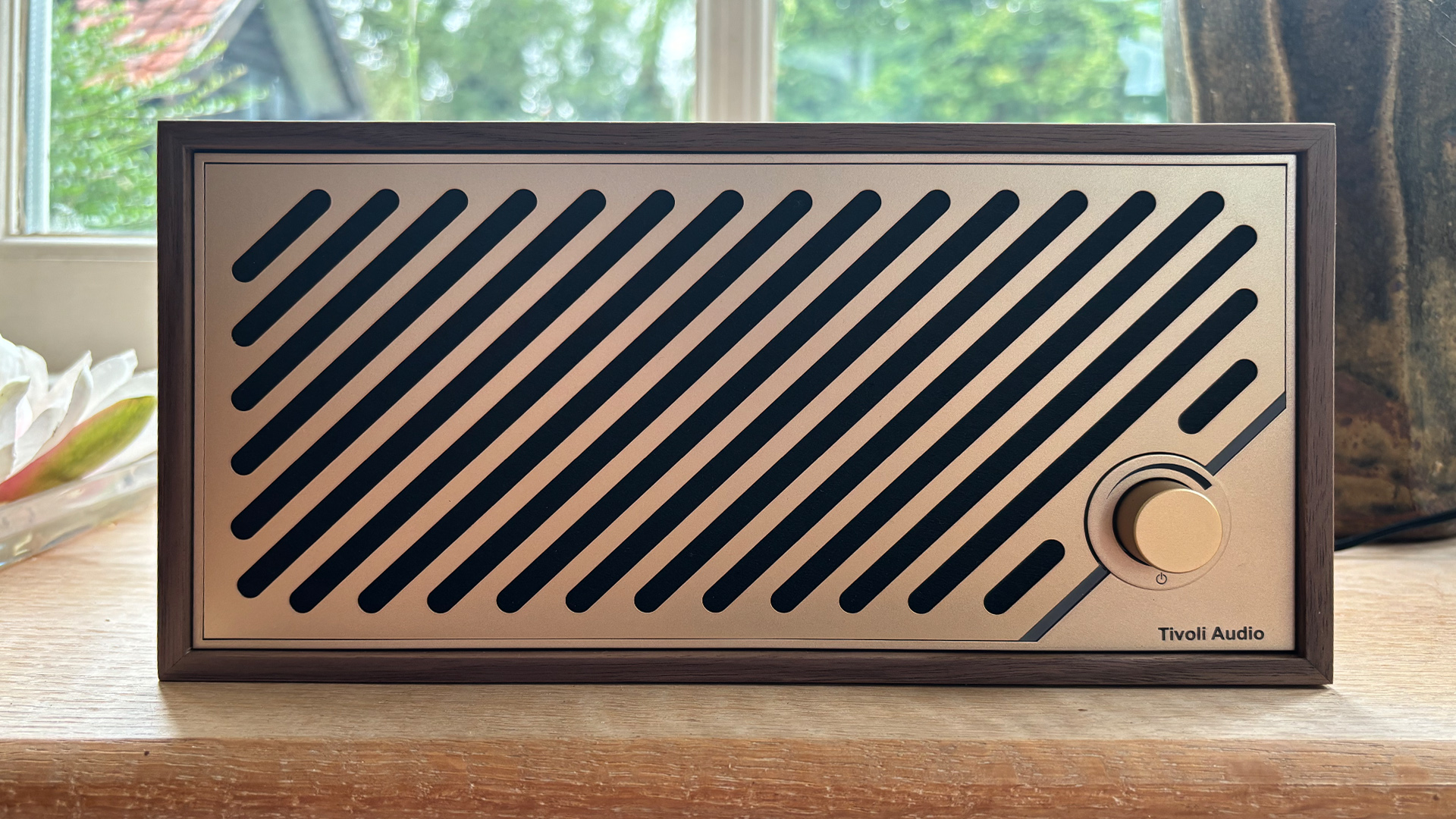What Hi-Fi? Verdict
The front-footed Tivoli Model Two Digital initially impresses thanks to its punchy, in-your-face personality. Digging deeper, though, reveals inescapable shortcomings
Pros
- +
Punchy, assertive sound
- +
Produces plenty of robust bass
- +
Classy retro aesthetic
Cons
- -
Rivals offer greater spaciousness and organisation
- -
Beatable for dynamics and rhythmic aptitude
- -
Lacking the features of similarly-priced alternatives
Why you can trust What Hi-Fi?
Anyone familiar with Tivoli will know that much of the brand’s reputation comes courtesy of its handsome radio designs. From the Audio Model 10 Plus through to the formerly Award-winning Model One Digital Generation 2, we’ve often found it hard to resist the sonic and aesthetic charms of a chic Tivoli radio.
Yet time marches ever-onwards, and while the humble radio in all its guises is far from redundant, the era of the wireless speaker has unquestionably arrived. Sonos made a serious splash via its Era 100 and Era 300 units, whereas Audio Pro has returned triumphantly to form thanks to its excellent Addon C10 MKII and recent C20 do-it-all models.
Tivoli’s Model Two Digital, then, looks like a product that has one eye on its heritage and another firmly on the ever-changing present. Strip away an exterior that looks all the world like a classic Tivoli radio and you’ll find a wireless speaker through and through, albeit one wearing a canny retro disguise. Can the Model Two Digital mix it up with the new boys, or has Tivoli found itself stuck in the past?
Price
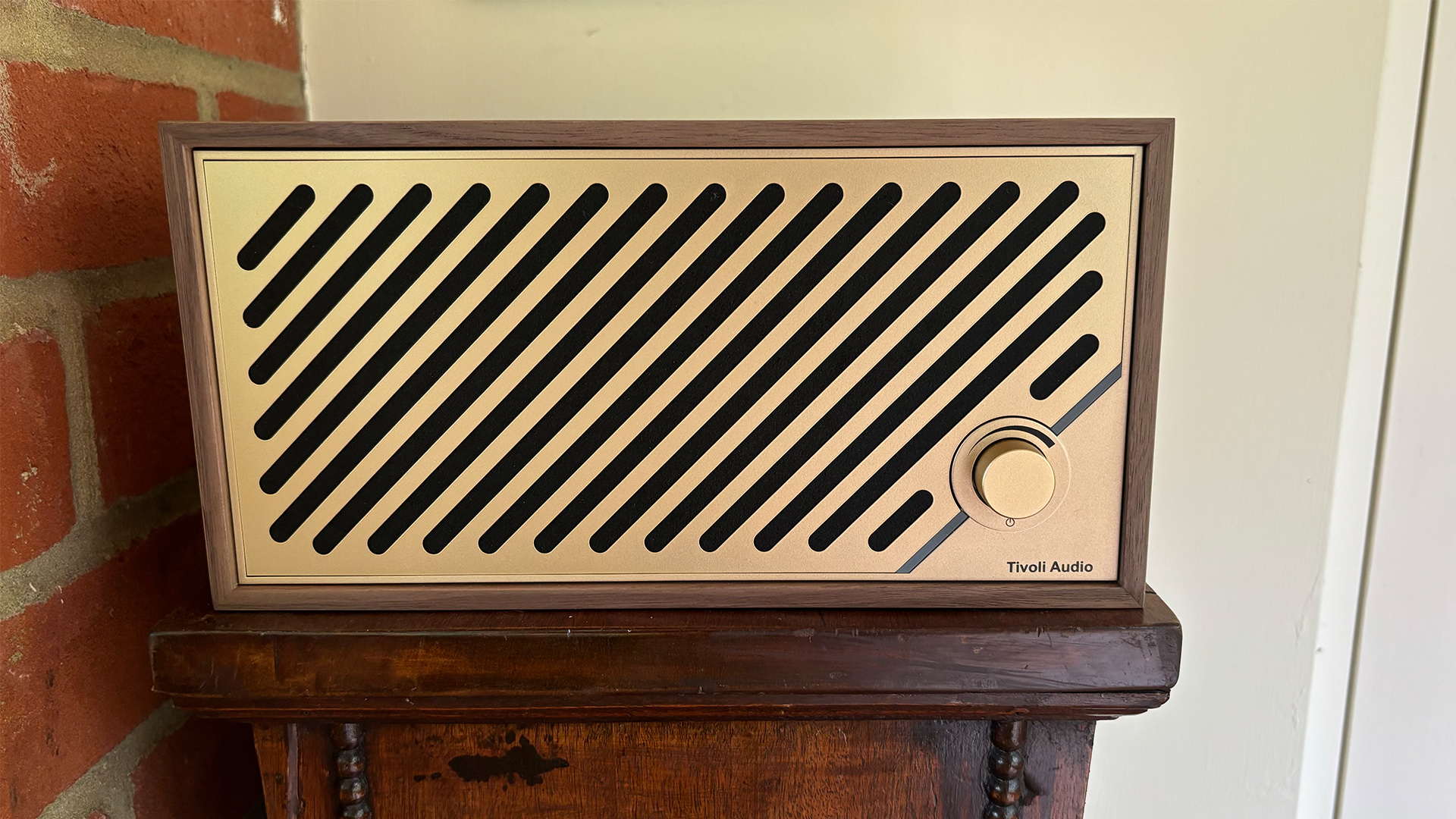
Currently retailing at £389 / $449 / AU$640, the Tivoli Model Two Digital is on a collision course with some major players in the wireless speaker space. Since our original testing, the pricing has gone down for the US and Australian markets: it can now be available for $399.90 and AU$499.
The What Hi-Fi? Award-winning Sonos Era 300 currently sits at around £380 / $449 / AU$750, while the impressive Audio Pro C20 MKII offers a more wallet-friendly alternative at around £280 / $400 / AU$699.
Further rivals abound. The newer, mains-powered Audio Pro C20 will set you back around £450 / $550 / AU$995, while JBL’s do-it-all Authentics wireless speaker was £380 / $450 / AU$600 during tests but has dropped intermittently since then during sales periods.
Build & design
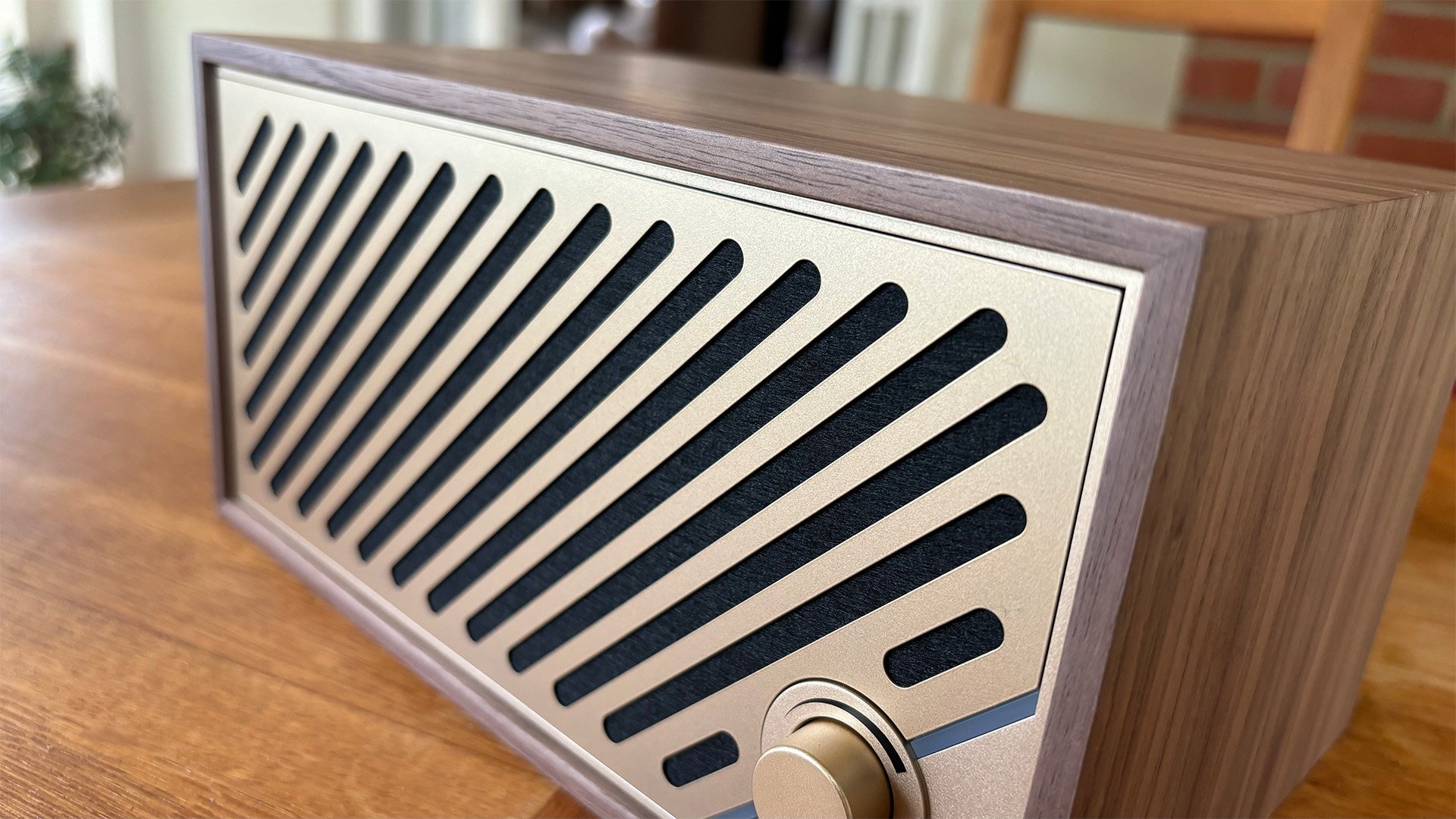
Let us reiterate our point from above: the Tivoli Model Two Digital is not a traditional radio. While its rectangular shape, brushed aluminium front grille, rotatory volume control knob and smooth wooden cabinet may immediately put you in mind of the classic radios of old, your eyes deceive you. Spend time with the Tivoli and you’ll find no on-unit digital display, no protruding aerial and, crucially, no Ken Bruce or Nick Grimshaw emanating from within. Well, unless you stream them from a mobile source, but we’ll get to that later.
Regardless of the initial impression it gives, Tivoli has clearly made a real effort to make the Model Two Digital feel like a retro product, eschewing the somewhat utilitarian design philosophies of the rival Sonos Era range or the Audio Pro C10 MKII to craft instead something that blends vintage looks with an air of refined elegance. It won’t be to all tastes, but we can see the appeal of a slim, unobtrusive unit that can be placed unfussily around a home or office.
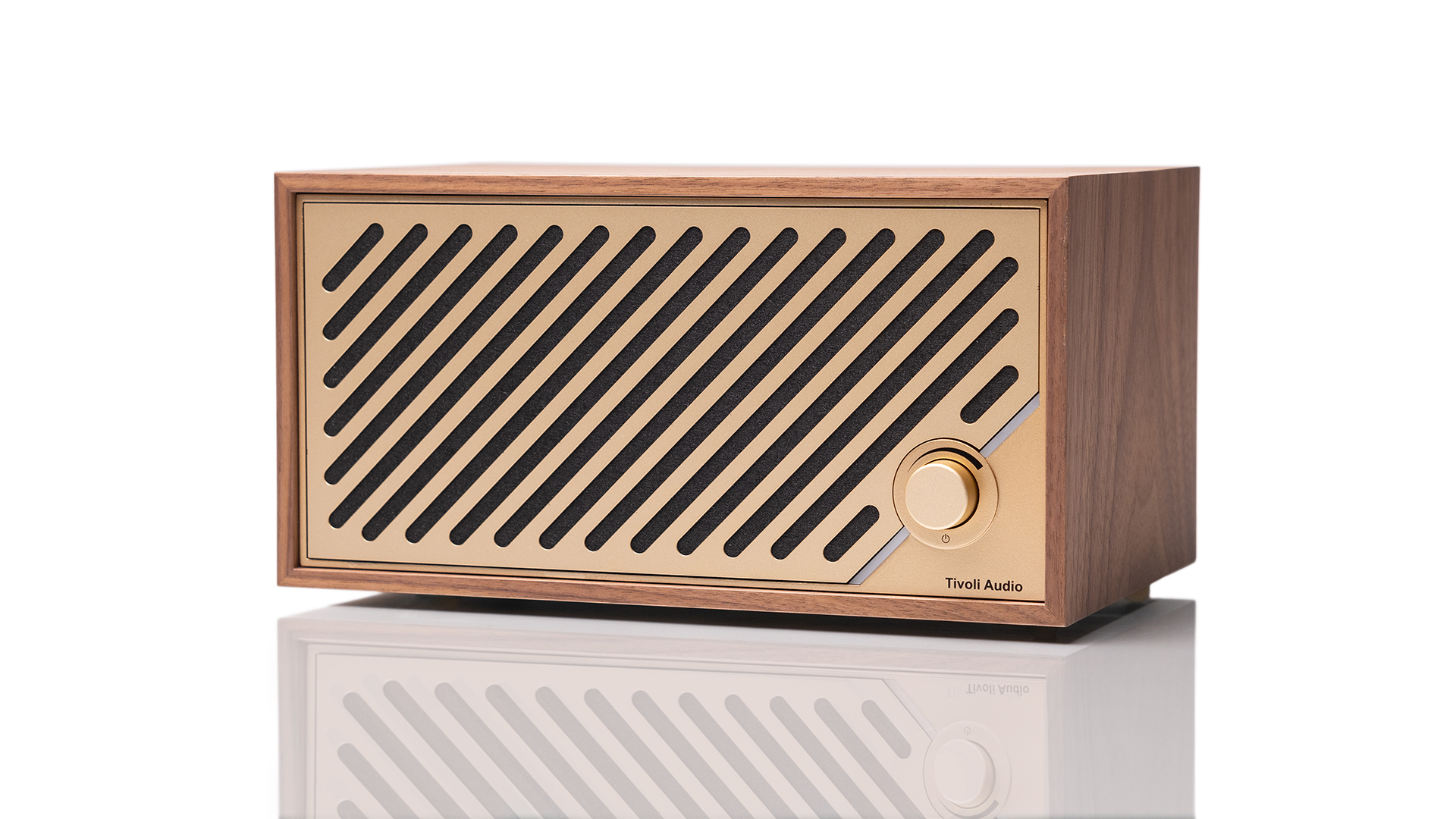
Power 20W
Bluetooth? Yes (5.2)
Mains-powered or battery-powered Mains-powered
Battery life N/A
Features Spotify Connect, Tidal Connect, Google Chromecast, AirPlay 2
Connections: USB-C (service), aux in
App? Google Home App
Dimensions (hwd) 12.3 x 25.2 x 15.8cm (placed horizontally)
Weight 2.2kg
Finishes x3 (walnut/gold, white/silver, black)
The brushed aluminium grille frontage is the speaker’s centrepiece, imprinted with diagonally slanted slats and finished to a pleasing standard. The main body of our test unit is made of light walnut which, when combined with the speaker’s subtle golden frontage, makes for a handsome speaker, even if we’re not all that keen on the overly sharp edges and corners of the cabinet itself.
The rather more functional back panel, meanwhile, houses the speaker’s power socket, USB-C (maintenance) and aux-in slots, alongside buttons for wi-fi and Bluetooth pairing. Some may prefer more controls at the front for easy access, but Tivoli likely felt it would have spoiled the overall aesthetic to clutter up the Model Two Digital’s handsome face with bothersome buttons – a single volume control knob in the bottom right-hand corner is all you’ll find here, as well as a diagonal indicator light for showing when the speaker is entering a given pairing mode.
Features
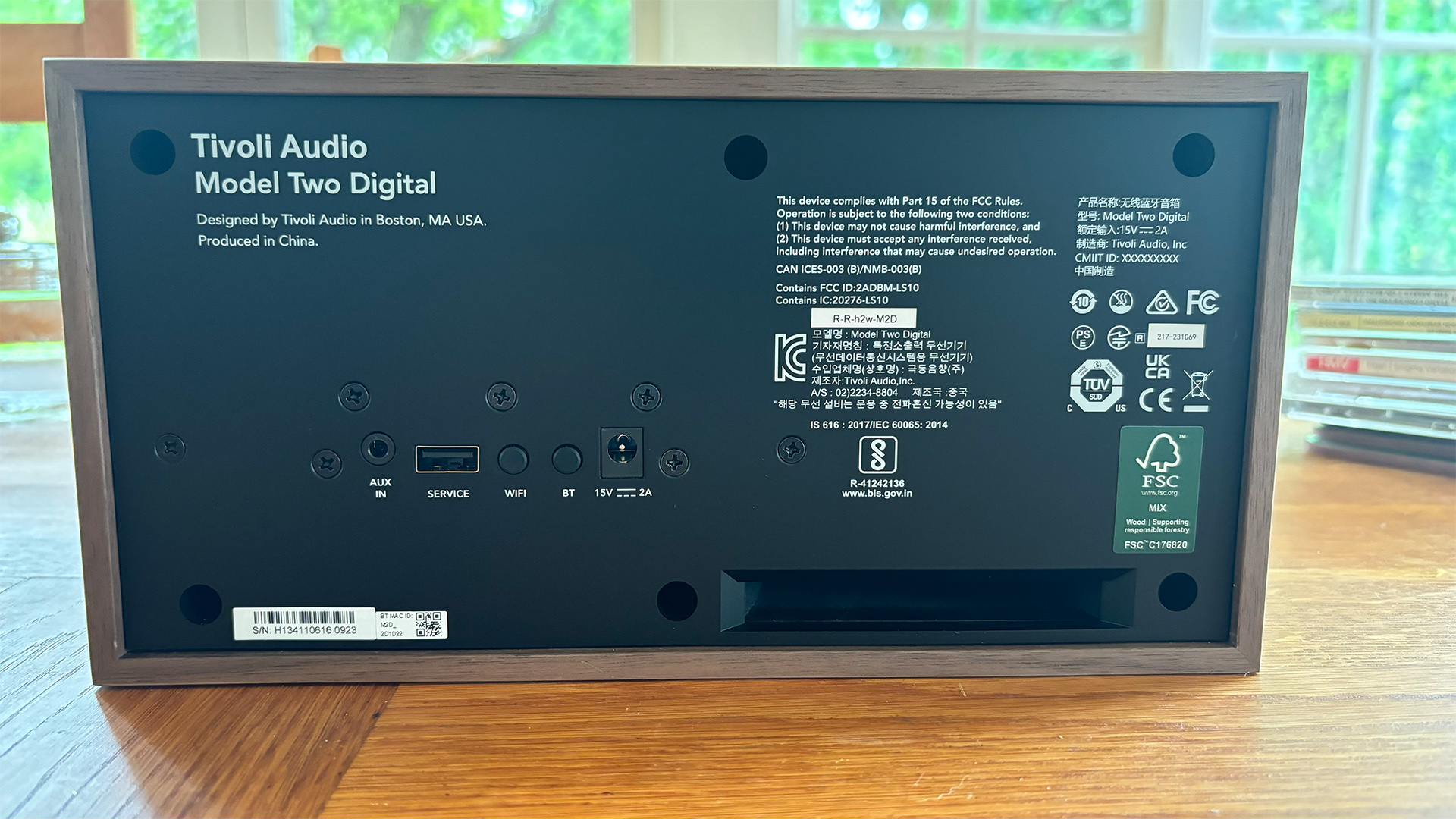
The Model Two Digital offers a solid range of connectivity options; AirPlay 2 and Google Chromecast are onboard, or you can simply hook up via Bluetooth 5.2. We’ve tested the speaker using various sources and platforms, noting a marked improvement in clarity, spaciousness and organisation when using wi-fi-based platforms.
If you want to go physical, a supplied 3.5mm aux port at the rear is handy for hooking up directly to your source player, something that again we found further improved the sound over both wi-fi and Bluetooth streaming, adding more detail and a greater sense of immediacy during our tests. There’s no supplied cable, though, so you’ll have to supply your own to benefit from what we feel is the Tivoli’s best sound.
Note, too, that the Model Two Digital doesn’t have support from its own proprietary platform. Instead, duties are taken over by the Google Home app, and while that’s all well and good for establishing and managing your connections, a lack of any equaliser functionality may be a dealbreaker for those users who find they like to tune their audio to their own liking.
All told, the Tivoli’s feature set does feel limited in comparison with some of the market leaders at this price. We’re not expecting the world on a plate, but when similarly-priced rivals such as the JBL Authentics 300 or the Sonos Era 100 are offering twin voice assistants, multi-room capabilities and clever self-tuning tech for the same sort of money, the Model Two Digital seems a little basic by comparison.
Sound
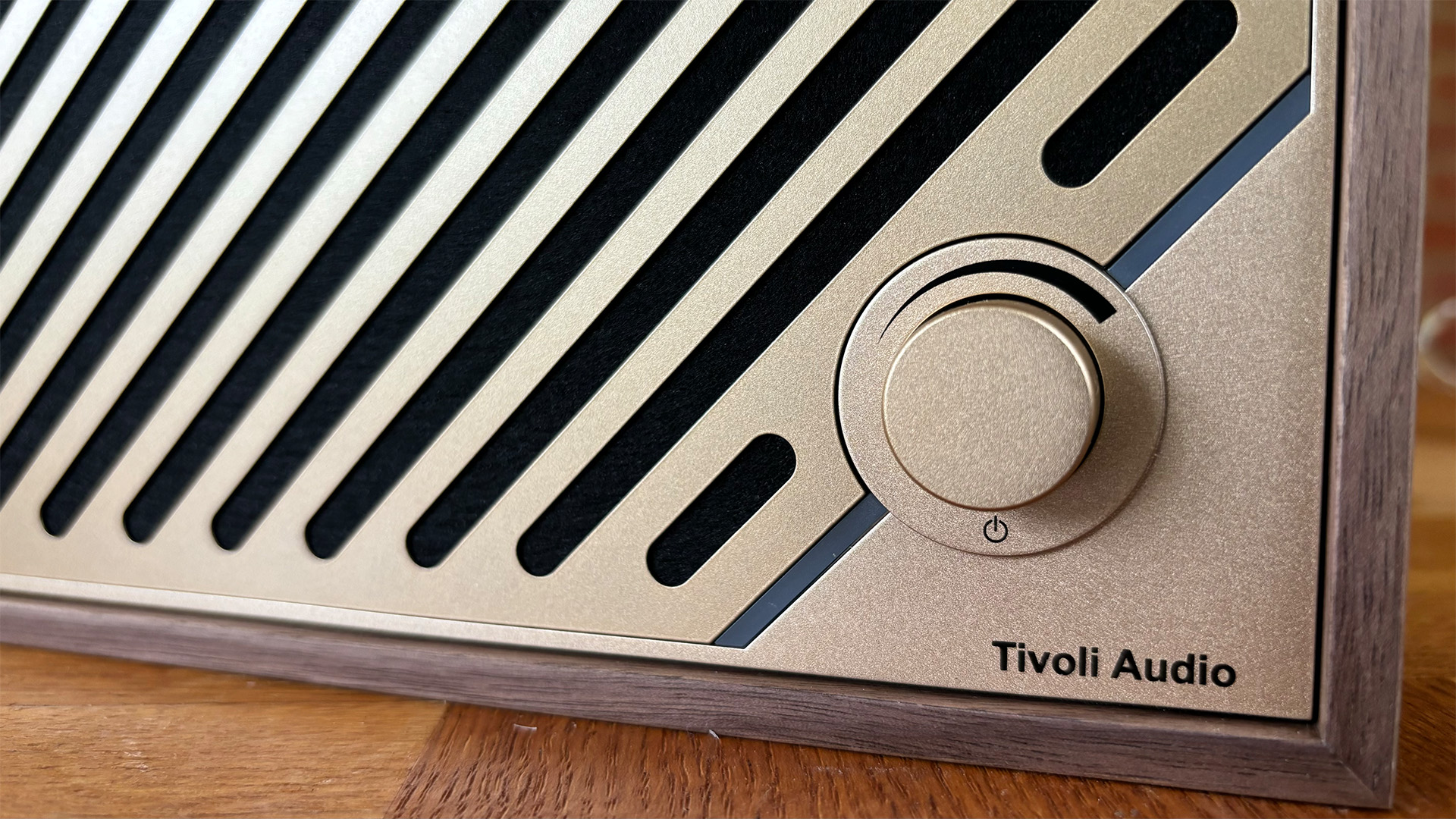
While it may have lured us in with its smooth retro charms, the sound that the Model Two produces is anything but easygoing. Suave on the outside but assertive and punchy when you get it firing, nothing quite matches up – it’s a bit like seeing Bing Crosby sauntering on stage in one of his classic striped suits before belting out a bit of black metal at full whack.
Once we’ve hurdled the initial shock, the Tivoli makes a positive early impression. It’s a punchy performer, with a sonic solidity and oomph that can be thrilling when matched with the right tracks. The ‘bass, snare, bass bass, snare’ pattern on Gorillaz’s Tranz comes across with power and aggression as the Tivoli latches on to the song’s clearly defined percussive underpinning and brings it out with confidence and authority.
There are solid levels of wallop and clarity at the lower end, characteristics that increase noticeably when you adorn the underside with some provided stick-on feet. The Tivoli sounds assertive across the sonic spectrum, with bass notes that blend weight and depth with solid levels of precision and focus, gathering all that power up and then sending it enthusiastically into our ears.
What the Tivoli doesn’t have is a class-leading sense of scale. When played side-by-side with the outstanding Audio Pro Addon C10 MKII, the Model Two Digital sounds forceful and compact, yet it lacks the pleasing openness that the five-star C10 effortlessly exhibits. The Tivoli bunches its elements together and then fires them at the listener like a character from Street Fighter charging up for an iconic “Hadouken!”, in contrast to the C10’s more spread-out, curated approach. When listened to against the Tivoli, the various elements of Pearl Jam’s Present Tense or Max Richter’s Never Goodbye are communicated with more expansiveness as the C10 MKII plots musical elements engagingly across its wide, spacious soundstage.

Continued investigation turns up further issues. For all of its punch and authority, the Model Two could do with more rhythmic aptitude to challenge the class leaders. The retro unit may give tracks plenty of muscle, but the rhythmic patterns of The Wombats’ Greek Tragedy or OutKast’s Roses lack snap and precision. Nor, sadly, does it do a class-leading job in terms of dynamics, colouring everything with the same, route-one approach and failing to differentiate the punchier, fuller tones of bass notes with the lighter, crisper snare hits when we switch back to Tranz.
The established Award-winner is more detailed, too. The Model Two may bring weight and power, but engaging details and textures are lost in favour of its rougher outlines. The guitar on Soundgarden’s Bleed Together is a pleasing mix of sludginess and crunch through the Audio Pro, while the Tivoli makes it loud and meaty but frustratingly one-dimensional and lacking in those more nuanced flavours. Vocals, too, are far better through the Audio Pro – really listen to Paolo Nutini’s singing on Through The Echoes and you’ll pick out more throaty raspiness at the bottom and nasal tones at the top through the C10 MKII. The Tivoli, by contrast, fails to draw out those varying elements with the same insight.
Verdict
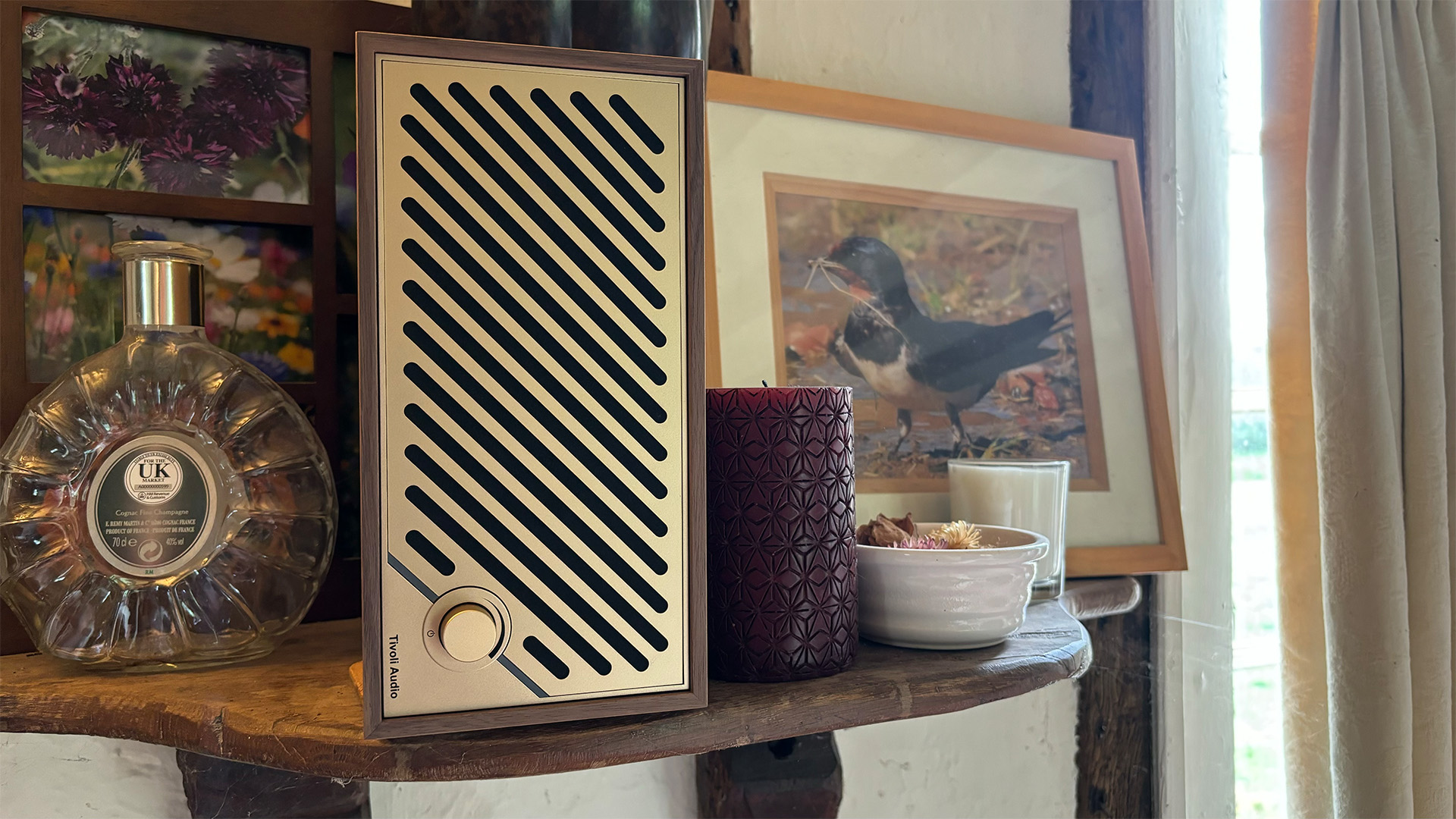
The Tivoli Model Two Digital feels like a speaker that occasionally flatters to deceive. Initial rounds of listening showcase a powerful, robust performer with a great deal of energy and bite, characteristics that we can’t help but find rewarding in the short term.
Further investigation, however, reveals unavoidable shortcomings. Despite being a good deal less expensive, the Audio Pro C10 MKII is a considerably more adept performer sonically, while five-star Sonos rivals offer better sound and a bounty of features which, sadly, makes the Tivoli’s effort look limited by comparison. Unless you’re a fan of the brand or you’re in love with how it looks, it’s hard to recommend the pricey Tivoli Model Two Digital when judged across almost any set of parameters.
SCORES
- Sound 3
- Features 3
- Build 4
MORE:
Read our review of the Sonos Era 300
Also consider the Audio Pro Addon C10 MKII
Read our JBL Authentics 300 review
Best Bluetooth speakers tried and tested for every budget
What Hi-Fi?, founded in 1976, is the world's leading independent guide to buying and owning hi-fi and home entertainment products. Our comprehensive tests help you buy the very best for your money, with our advice sections giving you step-by-step information on how to get even more from your music and movies. Everything is tested by our dedicated team of in-house reviewers in our custom-built test rooms in London, Reading and Bath. Our coveted five-star rating and Awards are recognised all over the world as the ultimate seal of approval, so you can buy with absolute confidence.
